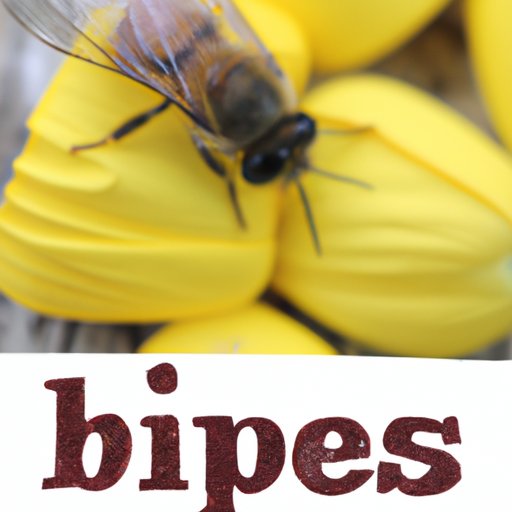
I. Introduction
Bee stings are a common problem, and they can cause pain, swelling, and other allergic reactions. In this article, we will discuss various ways to treat bee stings, including natural remedies and medical treatments. We will also explore ways to minimize and prevent reactions to bee stings.
II. Home Remedies for Bee Stings
There are several natural remedies that can help to alleviate the pain and swelling associated with bee stings.
- Baking Soda: Mix baking soda with water to form a paste, and then apply it to the affected area.
- Vinegar: Soak a cloth in vinegar and place it on the sting for 15-20 minutes.
- Ice Pack: Apply an ice pack or a cold compress to the sting to reduce swelling.
- Aloe Vera Gel: Apply aloe vera gel to the affected area to help soothe the skin and reduce inflammation.
III. Minimizing a Reaction to a Bee Sting
While most people only experience mild symptoms from bee stings, some people may have a severe allergic reaction, known as anaphylaxis. It is essential to recognize the signs of anaphylaxis, including difficulty breathing, hives, and dizziness. In case of emergency, call 911 or seek immediate medical attention.
People with bee sting allergies should carry an epinephrine auto-injector with them at all times. It is also crucial to take preventive measures, such as avoiding known triggers for bee sting allergies, being careful when eating outside, and wearing protective clothing when working outdoors.
IV. Medical Treatment for Bee Stings
For people who experience severe allergic reactions, emergency medical treatment may be necessary. Antihistamines and epinephrine can help to alleviate symptoms like hives, swelling, and difficulty breathing. Other medical treatments for bee stings may include topical corticosteroids to reduce inflammation and painkillers to reduce pain associated with the sting.
If you experience symptoms like difficulty breathing, chest pain, or dizziness, seek medical attention immediately.
V. Aftercare for Bee Stings
After a bee sting, it is essential to clean the area with soap and water. Avoid scratching the affected area, and keep the wound covered with a bandage or gauze. Over-the-counter pain relief medication can help to alleviate pain and discomfort associated with bee stings. It is also important to monitor the sting for signs of infection, such as redness or discharge. If you see any signs of infection, seek medical attention.
VI. Preventive Measures for Bee Stings
Preventive measures can help to reduce the likelihood of getting stung by bees. Avoid wearing perfume or bright clothing when spending time outside. Stay away from beehives, and be cautious when working outdoors, especially around flowers or other areas where bees may gather.
Some people also use essential oils like tea tree oil or lavender oil to help repel bees. However, the effectiveness of essential oils in preventing bee stings is still uncertain, and it is essential to be cautious when applying them to the skin.
VII. Myths Debunked
There are several common misconceptions about bee stings that are not true. One of the most common myths is that bees die after they sting. This is not always the case, and some bees can sting multiple times without dying. Another myth is that bees are attracted to sweet smells. While some bees may be attracted to the scent of flowers and sweet food, they are not attracted to perfumes, cologne, or other human-made sweet smells.
VIII. When to Seek Emergency Medical Attention for Bee Stings
Most people only experience mild symptoms from bee stings. However, some people may experience a severe allergic reaction, which requires immediate medical attention. Call 911 or seek medical attention if you experience symptoms such as difficulty breathing, chest pain, or dizziness.
IX. Conclusion
While bee stings can be painful and uncomfortable, they are usually mild and can be treated with natural remedies and medical treatments. By taking preventive measures and knowing when to seek medical attention, you can reduce your risk of experiencing a severe allergic reaction to bee stings.




